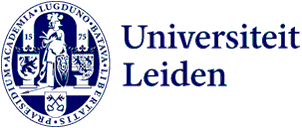Alumnus, legal philosopher, and globetrotter Bart Jansen: ‘don’t focus, but scatter yourself’
Alumnus Bart Jansen does not like to sit still. He teaches courses, for instance, in the Netherlands, Malaysia, and Curacao. He also likes to dabble in art and mysticism to take his mind off the law while also having a fascination for what he refers to as ‘everything that goes wrong’ in legal philosophy. ‘I love being around versatile people, the law alone is simply way too boring.’

What type of student were you?
Starting out, I wasn’t an exemplary student. I didn’t really take things seriously. In the obligatory speech during my PhD Ceremony drinks, my two assistants for the defence even talked about ‘a study vacuum’ and ‘the faculty, that so unfamiliar to you place’. That changed after a couple of years. I enrolled in electives at other faculties, such as art philosophy and photography at the Royal Academy of Art in The Hague. Turns out there was much to learn in that oh so unfamiliar to me place after all! That became even more obvious when I entered the master’s phase. Especially the Master’s Encyclopedie en Filosofie van het Recht appealed to me. It was wonderful, having to read a good book every week and writing an essay about it. So, everything turned out all right in the end.
Your resumé is nothing short of impressive, teaching at universities in the Netherlands, Indonesia, Malaysia, the United States, and Curacao. Can you explain how this all happened?
When I was doing my Master’s Encyclopedie en Filosofie van het Recht, I started teaching at the same department. After completing my master's degree, I got a job at the University of Amsterdam and the Nyenrode Business University. While at Nyenrode, I started working on my dissertation under the supervision of two supervisors who are very dear to me: Ronald Jeurissen and Tineke Lambooy. On my first day at Nyenrode, Tineke and I started an EU-funded project in which we investigated all kinds of social and ecological challenges within the global supply chains. This required a lot of travelling - something I very much enjoy doing. About six years ago, I ended up organising a large international conference on this theme. That's how I ended up at Airlangga University in Surabaya and now I visit the country for one or two months each year. I met some great friends there. Through word of mouth, I ended up at a lot of other universities in Indonesia and Malaysia as well.
My scholarship at New York University – at the Philosophy Department – partly came about because my partner lives in New York. I live there about half of the year, so it seemed a waste not to have a job there too. That is also the reason why I’m moving there in April. I’m very much looking forward to it, because I’ll be able to submerge myself in philosophy books for an entire year, will be able to meet all the greats in the field of philosophy, and because I think New York City is the best city in the world. I have family living on Curaçao and that is just round the corner from New York, so as soon as the temperatures start dropping, I like to go and teach in the Caribbean. It obviously helps that the law on Curaçao is the same as in the Netherlands. Indonesia still uses the old Dutch Civil Code and Dutch Criminal Code by the way. So, my knowledge of Dutch law is very useful there as well.
‘People are aware of what they're doing, and they still do it anyway’
What fascinates you about legal philosophy?
Everything that goes wrong really: dictators, wars, enemy images, fallen states, companies with too much power, lawlessness, a naive population, hypocrisy among administrators ... you name it! As a legal philosopher, I try to get a better understanding of such things. It’s a very nuanced story obviously. The German philosopher Peter Sloterdijk often buzzes through my head when it comes to this. He gave a new meaning to ‘cynicism’ as in meaning ‘enlighted fake awareness’: people are aware of what they’re doing, but they still do it anyway. Or in other words: they keep saying ‘yes’ to a reality, while fully aware of the incredibly high cost that comes with it.

Where is your main focus at the moment?
My dissertation was about the legalisation of corporate ethics. In my opinion, there is too much emphasis on codes of conduct and procedures in corporate ethics. There is too much focus on upholding those codes and too little on ethical-critical self-reflection. Which is why I started writing a sequel in New York. This time not focussing on the legalisation of corporate ethics, but on the politicisation. There is, for instance, within corporate ethics, a group of scholars who believe that since companies are just as powerful as states, those companies should also start behaving as states. Sounds nice, but there are also dangerous sides to politicisation. I hope to expose those in the upcoming year.
What advice do you have for current students?
Don’t focus, but scatter yourself and make sure you become very good at a great many things. I enjoy versatile people and especially students who can juggle a great many intellectual balls at the same time. For me personally, art, law, philosophy, mysticism, and spirituality form the foundation of my personal path to navigate through life and society. Law alone is simply way too boring.
